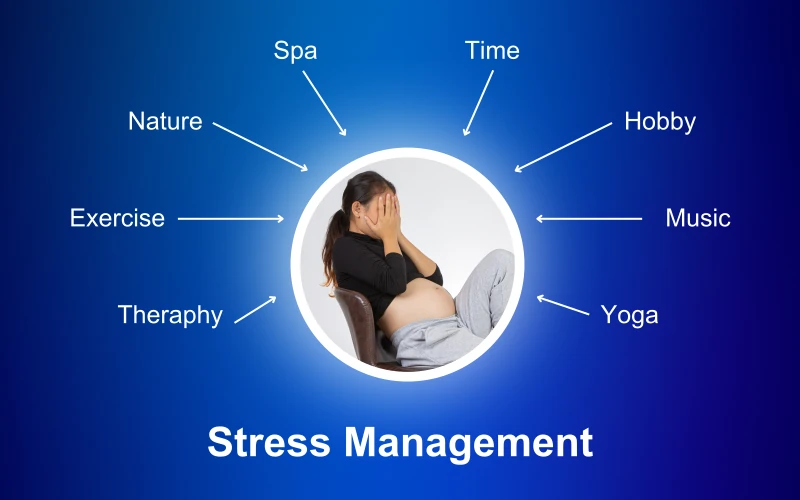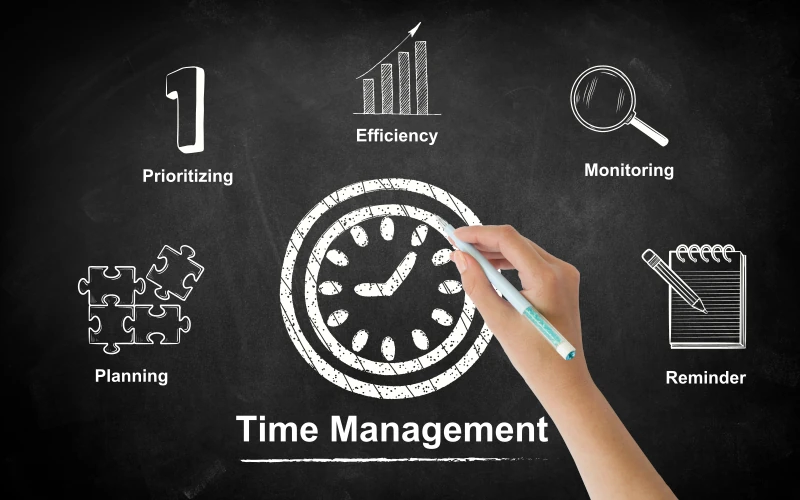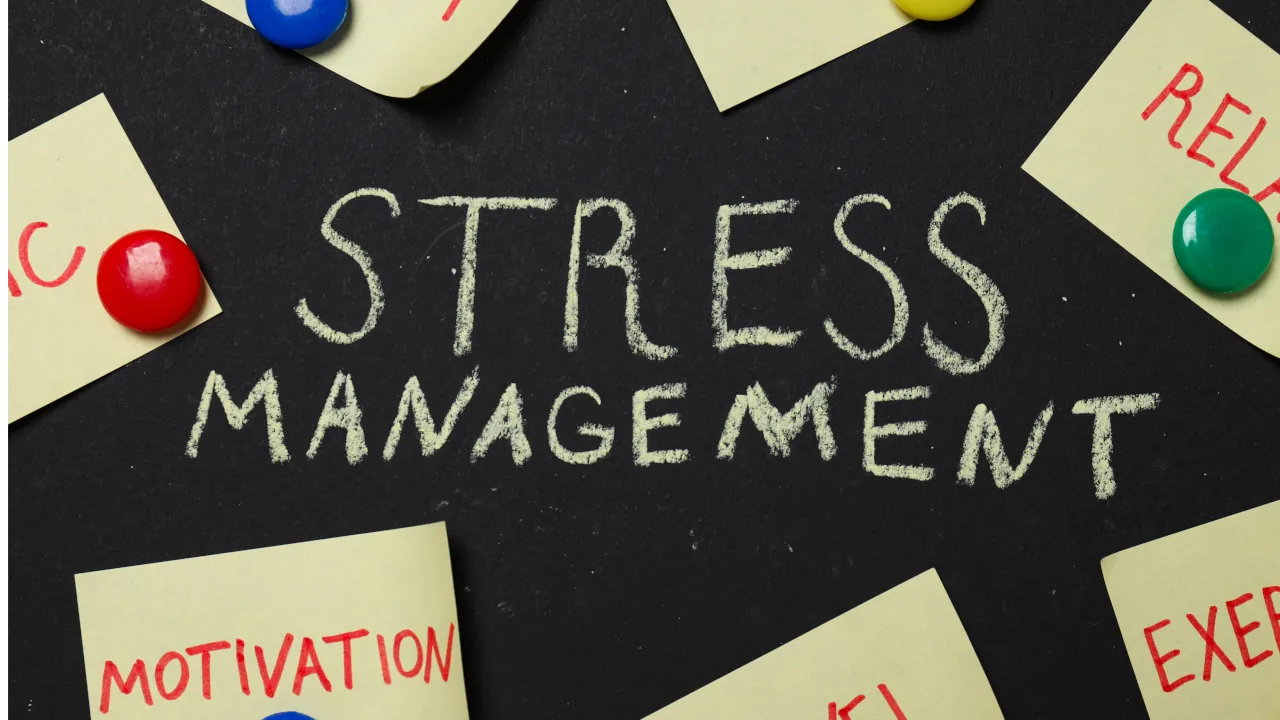In our fast-paced world, stress is a universal challenge that impacts people from all walks of life. While it’s a natural part of existence, prolonged stress can take a toll on your mental and physical health. That’s where stress management interventions come into play.
In this article, we’ll explore 10 effective strategies to enhance your well-being. And with the advent of cutting-edge remote patient monitoring technology, you can take charge of your stress levels like never before. Let’s dive in, learn to de-stress, and take the first step towards a healthier, happier life. Don’t miss our call to action at the end for valuable insights!

1. Cognitive-Behavioral Stress Management
Cognitive-behavioral stress management is a type of psychological intervention that helps individuals identify and modify their negative thought patterns and behaviors related to stress. The goal of cognitive-behavioral stress management is to change the way individuals perceive and respond to stressors, leading to reduced stress levels and improved overall well-being.
In cognitive-behavioral stress management, individuals work with a therapist to learn new coping skills and strategies for managing stress. This can include two main techniques:
- Cognitive restructuring: involves identifying and challenging negative thoughts and beliefs
- Behavioral activation: involves engaging in positive activities to improve mood and reduce stress.
Cognitive-behavioral stress management is effective in reducing stress levels and improving psychological well-being. In one randomized controlled trial, participants who received cognitive-behavioral stress management reported lower levels of perceived stress and higher levels of life satisfaction compared to a control group.
Cognitive-behavioral stress management can be delivered in various formats:
- Face-to-Face Therapy: Traditional one-on-one sessions with a therapist, providing a highly personalized approach to stress management.
- Group Therapy: Participating in group sessions led by a therapist where you can learn from and support others dealing with similar stressors.
- Online Programs: Access stress management modules and resources remotely, offering flexibility and convenience for those with busy schedules or limited access to in-person services.
It is important to work with a qualified mental health professional to develop an individualized stress management plan that is tailored to your specific needs and circumstances.
2. Relaxation Techniques
Relaxation techniques are a group of stress management interventions that aim to reduce stress and promote relaxation by calming the mind and body. There are several types of relaxation techniques that can help you manage stress at home. Some of the followings are:
- Progressive muscle relaxation: involves tensing and relaxing different muscle groups in the body to release tension and promote relaxation.
- Deep breathing techniques: involve taking slow, deep breaths to slow down the heart rate and promote relaxation.
- Guided imagery: involves visualizing peaceful scenes or environments to reduce stress and promote relaxation.
- Meditation: focusing on the breath or a specific word or phrase to calm the mind and reduce stress.
Relaxation techniques can be practiced individually or as part of a stress management program. They can be learned through guided instruction from a qualified professional or through self-guided practice using audio or video resources.
3. Time Management
Time management is a stress management intervention that involves organizing and prioritizing tasks and activities in order to maximize productivity and minimize stress. Effective time management involves setting clear goals, creating schedules and to-do lists, and delegating tasks when necessary.
By managing time effectively, individuals can reduce stress levels by avoiding the feeling of being overwhelmed and ensuring that they have enough time to complete tasks. Time management can also help individuals create a sense of control over their lives, which can reduce stress levels and promote overall well-being.
Time management skills can be learned through a variety of resources, including books, workshops, and online courses. It is important to identify and address any underlying issues that may be contributing to poor time management, such as procrastination or difficulty prioritizing tasks.

4. Coping Strategies
Coping strategies are a group of stress management interventions that involve managing and regulating the emotional and behavioral responses to stressors. Effective coping strategies can help individuals manage stress and promote resilience.
There are several types of coping strategies including:
- Problem-focused coping: taking practical steps to solve or alleviate the source of stress, such as seeking information or advice, or making a plan of action.
- Emotion-focused coping: regulating emotional responses to stressors, such as relaxation techniques or cognitive restructuring.
- Social support: seeking emotional or practical support from others, such as friends, family, or mental health professionals.
Coping strategies can be learned through a variety of resources, including books, therapy, and support groups. It is important to identify and address any underlying issues that may be contributing to stress levels, such as unresolved conflicts or unhelpful thought patterns.
5. Exercise
Exercise is a physical stress management intervention that involves engaging in physical activity to improve physical and mental well-being. Exercise has been shown to reduce stress levels, improve mood, and promote overall health.
Regular exercise can help reduce the negative effects of stress on the body, such as muscle tension and increased heart rate. Exercise also releases endorphins, which are natural mood-boosting chemicals in the brain.
Exercise can take many forms, including aerobic exercise, strength training, yoga, and Pilates. It is important to find a form of exercise that is enjoyable and sustainable for the individual.
6. Mindfulness-Based Stress Reduction (MBSR)
Mindfulness-Based Stress Reduction (MBSR) is a stress management intervention that involves the use of mindfulness practices to relieve stress instantly and promote well-being. MBSR was developed by Jon Kabat-Zinn at the University of Massachusetts Medical Center in the 1970s.
MBSR involves a combination of mindfulness meditation, body awareness, and yoga. The program typically involves an eight-week training course that teaches participants how to develop mindfulness skills, such as paying attention to the present moment, accepting experiences without judgment, and cultivating compassion.
MBSR can be practiced in a variety of settings, including in-person classes, online programs, and self-directed practice. It is important to find a program that is led by a qualified instructor and is tailored to the individual’s needs and preferences.
7. Social Support
Social support is a stress management intervention that involves seeking help and support from others, such as family members, friends, or colleagues. Social support can take many forms, including:
- Emotional Support: This type of support provides understanding, empathy, and a listening ear, helping individuals feel validated and less alone in their stressors.
- Instrumental Support: Practical assistance, like offering to help with tasks or providing resources, can be a significant relief for those under stress.
- Informational Support: Access to guidance, advice, or information can empower individuals to make informed decisions and better manage their stressors.
8. Stress Management Training Program
A stress management training program is a comprehensive intervention that aims to teach individuals a variety of stress management techniques and coping skills. These programs typically involve a structured curriculum that includes education on the effects of stress on the body and mind, as well as instruction on a range of stress management techniques.
Stress management training programs can include a variety of techniques, such as cognitive-behavioral therapy, relaxation techniques, mindfulness practices, time management, and social support. The program may be delivered in a variety of formats, including face-to-face classes, online programs, or self-directed study.
It is important to find a stress management training program that is tailored to the individual’s needs and preferences. A qualified instructor or mental health professional can help individuals identify the most effective stress management techniques and coping strategies for their specific situation.
9. Psychosocial Interventions
Psychosocial interventions are a broad category of treatments that address the psychological and social aspects of a person’s health and well-being. These interventions can be used to help individuals manage a variety of issues, including stress, anxiety, depression, and other mental health conditions.
Psychosocial interventions may be particularly effective when used in combination with other stress management strategies, such as exercise, relaxation techniques, or mindfulness practices. There are many types of psychosocial interventions including:
- Cognitive-Behavioral Therapy (CBT): CBT helps individuals identify and change negative thought patterns and behaviors, offering practical tools to manage stress effectively.
- Interpersonal Therapy (IPT): IPT focuses on improving relationships and communication skills, which can be especially valuable for those experiencing stress related to social interactions.
- Supportive Therapy: This intervention provides a safe and non-judgmental space for individuals to express their feelings and concerns, often emphasizing emotional support and empathy.
These interventions can be delivered through various means, such as individual or group therapy sessions, online programs, or self-help materials, catering to different preferences and needs.
10. Diet and Nutrition
Do you know that there is a link between diabetes and depression? How mental health is related to physical health is why the food we eat can have a significant impact on our stress levels and overall well-being. A balanced and nutritious diet can provide the body with the nutrients it needs to cope with stress and promote physical and mental health.
Certain nutrients, such as omega-3 fatty acids and vitamins B, may be particularly important for reducing stress levels and improving mood. Additionally, a diet that is high in fruits, vegetables, and whole grains may help to reduce inflammation and improve overall health, which can in turn help to reduce stress.
On the other hand, a diet that is high in processed and sugary foods may contribute to increased stress levels and poor health outcomes. For example, a study found that individuals who consumed more processed and sugary foods reported higher levels of perceived stress and lower life satisfaction.
In addition to consuming a balanced and nutritious diet, it is important to pay attention to factors such as portion sizes, meal timing, and hydration. Eating regular, balanced meals throughout the day and staying hydrated can help to regulate blood sugar levels and prevent spikes in cortisol, a hormone that is associated with stress.
Importance of Clinical Trials in Evaluating Stress Management Interventions
Clinical trials are a crucial component in validating the effectiveness of stress management interventions, particularly cognitive-behavioral and psychosocial interventions. For instance, in a randomized controlled evaluation of the psychophysiological effects of social support stress management in healthy women, the effect size of behavioral interventions in reducing stress exposure was evaluated using a randomized controlled trial. The study found that the stress management program significantly improved the response to stress in the participants, leading to a reduction in stress exposure and related consequences.
Clinical trials play a vital role in validating the effectiveness of stress management interventions in improving the response to stress and reducing stress-related consequences. They provide valuable information regarding the effect size of interventions and guide the development of stress management programs. Incorporating cognitive-behavioral and psychosocial interventions in stress management training can be an effective approach to improving coping responses to stress and reducing the impact of stress on health.
Using DrKumo Remote Patient Monitoring Technology in Stress management Intervention
The use of self-management skills has become increasingly important in the field of healthcare, especially with the rise of chronic diseases and the impact of stress on patient outcomes. DrKumo, a technology leader in remote patient monitoring (RPM), provides a user-friendly solution to manage chronic diseases and acute care in the comfort of patients’ homes. By leveraging state-of-the-art, HIPAA-compliant, mobile-enabled, continuous real-time monitoring, and AI/ML engine, DrKumo RPM technology supports healthcare providers with real-time intelligence for timely intervention and better management of patients’ health conditions.
DrKumo RPM technology allows patients to measure their vital signs, track medication adherence, and monitor symptoms in real-time, providing them with the information they need to manage their health conditions effectively. The platform’s AI/ML engine uses this data to generate insights and alerts for healthcare providers, enabling them to intervene early when necessary and prevent adverse health events. DrKumo innovative and collaborative culture, combined with its technology-driven approach, provides the most effective solutions to both patients and healthcare providers. With DrKumo RPM technology, stress management improves, and the consequences of stress-related conditions can be managed more effectively, leading to better health outcomes for patients.
Frequently Asked Questions
What are stress management intervention strategies?
Stress management intervention strategies are various techniques and approaches used to reduce, cope with, and manage stress. These strategies aim to enhance overall well-being by addressing the physical, emotional, and psychological aspects of stress.
How can I identify when I need stress management interventions?
You may need stress management interventions when you experience persistent feelings of anxiety, irritability, physical discomfort, or find that stress is negatively impacting your daily life, work, or relationships.
Can stress management strategies work for everyone?
While stress management strategies are effective for many individuals, their success can vary from person to person. Finding the right combination of techniques that work for you may require some trial and error.
Are there self-help stress management options available?
Yes, there are many self-help resources, including books, online programs, and mobile apps that can guide you through stress management techniques. These options can be a convenient and accessible way to get started.
Is it necessary to consult a mental health professional for stress management interventions?
While self-help resources can be effective, consulting a mental health professional, such as a therapist or counselor, is advisable, especially when stress is severely affecting your life. They can provide personalized guidance and support.
What is the role of technology in stress management interventions?
Technology, such as remote patient monitoring and stress management apps, can aid in tracking and managing stress. They offer tools for self-assessment, relaxation exercises, and stress reduction techniques.
How can I choose the right stress management strategy for me?
The right strategy depends on your individual preferences and the nature of your stress. Experiment with different techniques, seek professional advice, and consider what aligns best with your lifestyle and needs.
Are there natural or holistic stress management approaches?
Yes, holistic approaches like meditation, yoga, and mindfulness can be effective stress management techniques. They focus on the mind-body connection and can complement other strategies.
Can stress management interventions have long-term benefits for health?
Yes, effective stress management interventions can lead to long-term health benefits, including reduced risk of stress-related illnesses, improved mental well-being, and enhanced overall quality of life.
What should I do if I’m unsure about which stress management intervention to choose?
If you’re uncertain about which stress management intervention is right for you, consider consulting a mental health professional. They can assess your needs and provide guidance tailored to your unique situation.
Takeaways
Stress is a common experience that can have negative effects on our physical and mental well-being. However, stress management interventions can be effective in reducing the negative impact of stress. Clinical trials have played a vital role in evaluating the effectiveness of these interventions, using measures such as questionnaires, cardiovascular and somatic markers, and analysis of rumination.
It is important for individuals to develop stress management skills to cope with acute stress and prevent long-term negative consequences. The effective size of stress management interventions can vary, but their positive impact on well-being has been well-established by research.
Consider implementing RPM in your stress intervention programs for remote and continuous monitoring of your health. Contact DrKumo now.








